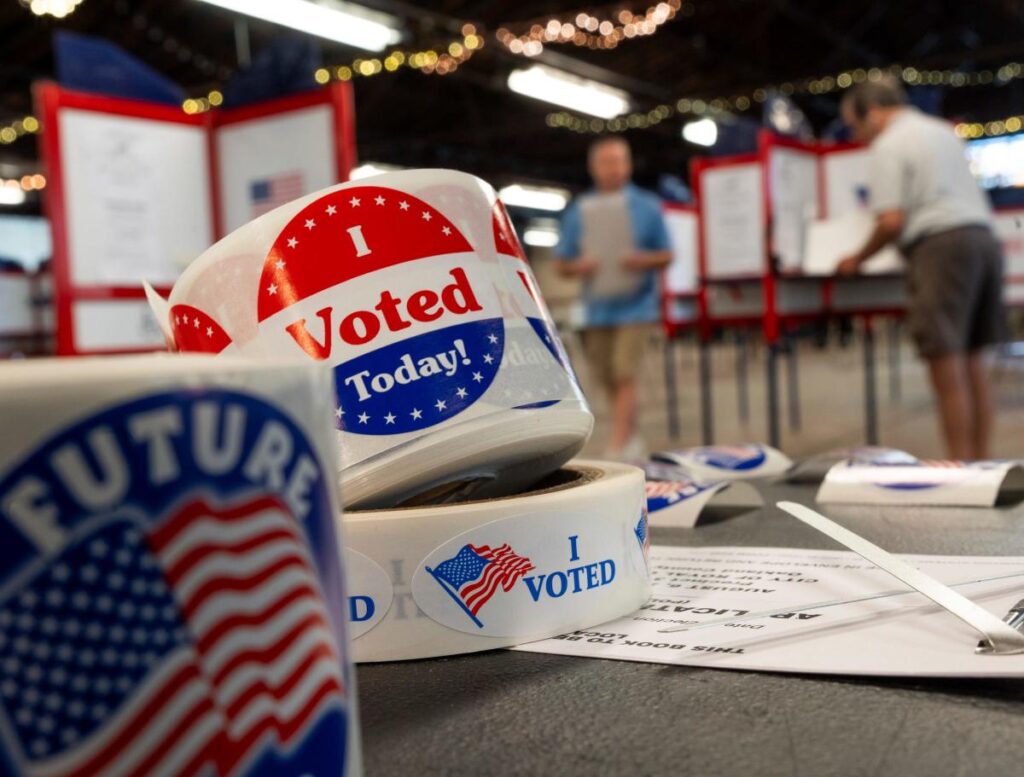As Election Day approaches, candidates and their surrogates are aggressively attempting to mobilize voters through a myriad of outreach strategies including mail, emails, phone calls, and text messages. While this increased engagement aims to encourage voter participation, it has also raised concerns among some Michiganders about the depth of personal information these unsolicited messages reveal. Voters like Grace Gleason have expressed discomfort at the knowledge that senders, often strangers, appear to possess significant details about them. While individuals retain their voting choices as confidential, their registration and other related information are often public, leading to a situation where political campaigns can access this data to influence voter behavior. The blending of voter outreach with privacy concerns presents a complex landscape for many citizens.
Additionally, the concern regarding the unsolicited messages has prompted voters to question the sources contacting them and the extent of their personal information being leveraged. Many voters are apprehensive about potential harassment or misrepresentation, and the rise of personalized yet intrusive messaging has led them to reconsider their privacy in the voting process. While the act of voting itself remains private, the accessibility of voter turnout records has sparked a broader discussion about privacy and the implications of using public data in campaigning. Even voters previously indifferent to such privacy issues are beginning to contemplate their personal data and how it is used in the political sphere.
Digital technology has made voter tracking easier, and changes in laws since 2018 have increased the accessibility of absentee and early voting. However, these advancements come against a backdrop of heightened political polarization and increasing fears among voters about exposure and harassment. The frequency and nature of outreach messages, often perceived as intrusive or “creepy” on social media, have made a mark, with some citizens expressing outright distress at the intrusiveness of these campaigns. Coupled with external pressure from social commentary and media attention, these repeated messages have not only complicated voter outreach efforts but also highlighted concerns over privacy and the safety of individuals during the electoral process.
The complaints surrounding these outreach tactics have caught the attention of state officials, who are fielding concerns from voters regarding misleading or aggressive messaging. The Secretary of State’s office has received reports about third-party organizations sending unsolicited messages about absentee ballots, which have contributed to voter confusion rather than clarity. Much of the reporting emphasizes the importance of sourcing accurate information concerning the voting process and the necessity for voters to approach all communications with caution, especially those claiming to represent official voting channels. Additionally, voters are encouraged to report questionable practices, ensuring accountability among organizations sending out such messages.
As various political organizations and individuals adopt increasingly creative tactics to encourage voter participation, it raises questions concerning the ethics and effectiveness of these strategies. Some have resorted to gimmicks ranging from cute holiday-themed texts to aggressive reminders about unreturned ballots. Others have adopted low-tech solutions like personalized postcards to convey a sense of community engagement in the voting process. Beyond simple encouragements, the strategies employed may evoke discomfort by hinting at public accountability for voting behavior, thus introducing a layer of social pressure that can border on intimidation.
While there is a consensus that targeted and personalized outreach does yield positive results in voter engagement, the methods implemented prompt discussions about privacy violations and the morality of leveraging personal information. States have different regulations governing the public access of voter information, and legislative movements are underway to standardize rules surrounding privacy and personal data in electoral contexts. Ultimately, as voter data becomes more accessible and analytical methods improve, there is a looming possibility that invasive outreach tactics may continue to escalate, pressuring voters to advocate more rigorously for their data rights and privacy. Amid these growing concerns, the potential future of electoral engagements rests on striking a balance between effective voter mobilization and safeguarding individual privacy rights.

